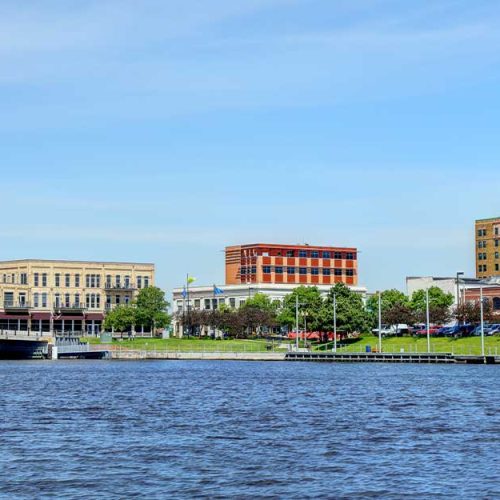Posted on 09/24/24 01:25:pm
Contact: Maddy O’Neill, Communications and Public Relations Lead
madalyn.oneill@rogersbh.org, 262-599-4542
MANITOWOC, Wis. — Rogers Behavioral Health has opened a new clinic in Manitowoc, Wisconsin, providing needed Mental Health and Addiction Recovery services for adults.
The clinic is located downtown within Lighthouse Recovery Community Center’s building at 818 State St.
Effective, accessible care treating substance use disorders is of critical importance. The latest available data from the Wisconsin Department of Health Services shows an upward trend of opioid overdose deaths in the state, including in Manitowoc County where such deaths increased from 13 in 2021 to 22 in 2022.
“With the opening of our Manitowoc clinic, we are proud to continue our mission, providing highly effective mental health and addiction treatment to help people as they cope with the many challenges of day-to-day life.” says Cindy Meyer, Rogers’ president and CEO. “We are listening to community needs and responding, making our critical, proven care more accessible. We are grateful to Lighthouse Recovery Community Center for making space available to bring our life-saving services to the Manitowoc community.”
Rogers’ Manitowoc clinic will help overcome barriers people may face when seeking care, including a lack of options within a drivable distance and long waitlists for treatment.
“Rogers is committed to improving access to mental health and addiction care. We know our Mental Health and Addiction Recovery services help patients get better and can be life-saving, especially in areas such as Manitowoc County, where we’ve found overdose rates are higher than many surrounding counties,” says Michelle Maloney, PhD, LPC, CAADC, CRPS, executive clinical director of Rogers’ Mental Health and Addiction Recovery. “We are excited to now be a part of the Manitowoc community, bringing our proven treatment where it’s needed to help more people live more fulfilling lives.”
Rogers will provide partial hospitalization programs (PHP) and intensive outpatient programs (IOP) for Mental Health and Addiction Recovery. In PHP and IOP, our programs are tailored to the individual needs of our patients. The length of time the individual will be in the program varies based on their individual treatment goals and success in meeting these goals. Working with our compassionate, multidisciplinary team, our patients are involved in the treatment planning process from day one until discharge.
“We are incredibly excited to welcome an organization like Rogers Behavioral Health,” says Jason Latva, executive director of Lighthouse Recovery Community Center. “Their mission and values align with ours in the quest to help individuals improve their lives.”
Those interested in more information can visit our website at rogersbh.org/locations/manitowoc-wi.
About Rogers Behavioral Health
Rogers Behavioral Health is a nationally recognized, not-for-profit provider of mental health and addiction services. Rogers offers evidence-based treatment for adults, children, and adolescents with depression and other mood disorders, eating disorders, addiction, OCD and anxiety disorders, trauma, and PTSD. In addition to locations in California, Colorado, Florida, Georgia, Illinois, Minnesota, Pennsylvania, Tennessee and Washington, Rogers operates three inpatient behavioral health hospitals, 17 residential programs and eight centers offering PHP and IOP treatment in Wisconsin — soon to be nine. Outpatient services for medication management and psychiatric evaluations are offered virtually and in-person in Wisconsin.
The System also includes Ladish Co. Foundation Center, home to Rogers Research Center, the Rogers Foundation, and the Ronald McDonald Family Room®. In addition, Rogers leads the nationwide WISE coalition with the goal of eliminating stigma related to mental health and substance use disorders. Learn more at rogersbh.org.
About Lighthouse Recovery Community Center
Lighthouse Recovery Community Center is a non-profit organization in Manitowoc and Sheboygan Counties that provides resources, education, and support to anyone who has been impacted by addiction, providing hope that recovery is possible, education to support health and well-being, and support that increases positive outcomes, resulting in a healthier community for all.


